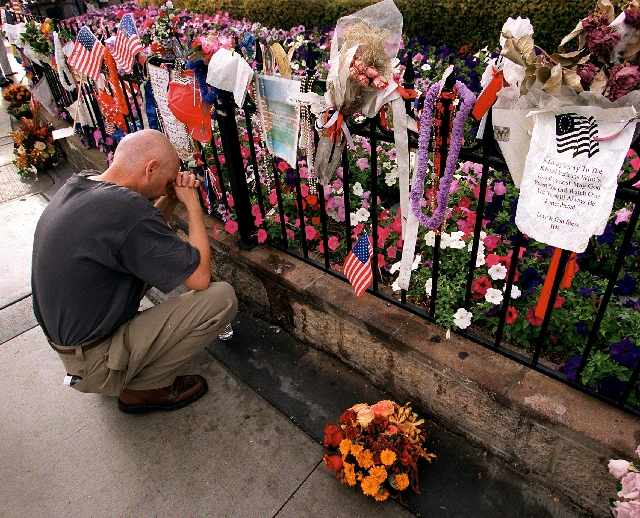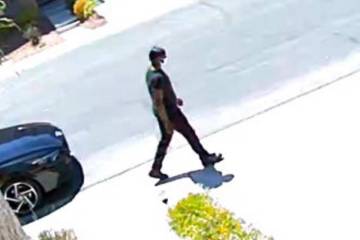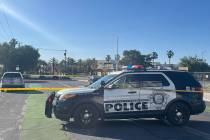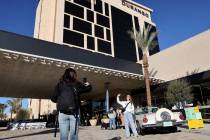Clark County appeals lower risk ranking to Homeland Security officials
Five of the 19 hijackers linked to the Sept. 11, 2001, attacks visited Las Vegas in the months preceding their terrorist acts.
It’s something Clark County is emphasizing as it appeals the U.S. Department of Homeland Security’s recent move to drop the region’s risk ranking from 30th to 33rd nationwide. The slide in ranking could cost the area all of the $1.8 million in federal funding it receives for regional homeland security and anti-terrorism efforts in the valley, including the Southern Nevada Counter-Terrorism Center.
County officials aren’t sure why the Las Vegas region’s ranking dropped and question the methodology that the federal agency used to make its preliminary finding for the program, called the Urban Area Security Initiative.
The program put about
$490 million total this year into security efforts in 31 metropolitan areas, including the $1.8 million for the Las Vegas area. Placing 33rd would put Las Vegas outside the tier of cities being funded.
County officials are pushing the federal agency to change its preliminary finding before finalizing the ranking, which will happen in the next 45 to 60 days.
Specifically, the county points to a “clustering” approach that the agency uses when counting critical infrastructure locations, including resorts along the Strip and downtown that are grouped close to each other. For example, 35 separate resorts are counted only as one asset, under the federal agency’s methodology.
“This is not only incomprehensible, it is indefensible,” County Emergency Manager and Deputy Fire Chief Fernandez Leary wrote in an April 5 letter to the U.S. Department of Homeland Security.
The county also points to the abundance of hotels, heavy visitor volume and high-profile events that draw crowds as a reason for keeping its ranking higher.
Las Vegas gets nearly 40 million visitors annually.
Federal officials didn’t respond Monday to requests for comment.
‘Highly attractive terrorist target’
In his letter, Leary wrote that the Las Vegas area “has long been considered a highly attractive terrorist target” since the discovery that five of the 19 terrorists involved in the Sept. 11 attacks had visited the city. Leary also cites videotape seizures in 2002 of suspected al-Qaida operatives that show footage of several resorts, including Mandalay Bay, Excalibur, MGM Grand and New York-New York.
That footage was later played in a post-9/11 federal trial of a possible terrorist cell in Detroit, where one defendant called Las Vegas the “city of Satan.”
Elected officials from the county, Las Vegas, North Las Vegas and Henderson are urging Homeland Security officials to reconsider the designation. Clark County Commission Chairman Steve Sisolak, Sheriff Doug Gillespie and the mayors of all three cities sent a joint letter on April 10 outlining their concerns and calling the ranking change “unacceptable and indefensible.”
Besides the counterterrorism center, the funding has paid for projects that include a Southern Nevada Health District epidemiology surveillance program to identify potential disease outbreaks, a program for protecting critical infrastructure, and equipment for first-responders to determine whether people are exposed to radiological and nuclear materials.
Sisolak said he is concerned about the loss of funding, noting the heavy visitor volume the region gets each year.
“I don’t want to take funding away from anybody, but I am concerned about the lack of funding for the Strip,” he said.
Commissioner Larry Brown, a Boston native, said last week’s bombing at the Boston Marathon reinforces the need to be vigilant.
“Here we are, maybe one of the most recognized cities in the world, with more hotel rooms on one of our corners on the Strip than many cities have in their entire jurisdiction,” he said. “Why? The question is why. And certainly I don’t think we’re the most important city, but the whole purpose of this funding is to be proactive in anti-terrorism activities.”
For Las Vegas to be dropped below some other cities “just doesn’t make very much sense,” Brown said.
Reid requests explanation
Local leaders have enlisted the support of U.S. Sen. Harry Reid, D-Nev., and U.S. Rep. Dina Titus, D-Nev. Both have written letters to Homeland Security Secretary Janet Napolitano asking for an explanation.
“Hundreds of thousands of people gather in large venues in Southern Nevada every day,” Reid wrote in his April 18 letter asking for a detailed explanation of the ranking change.
In his letter, Reid also noted the proximity of Nellis and Creech Air Force bases, with the Nevada National Security Site. The Las Vegas area relies more strongly on the funding than other cities, which may have additional funding sources.
In her April 19 letter, Titus wrote that the area has the potential for “high consequence events,” affecting public health and safety. Without the funding, the Federal Emergency Management Agency and the region would be at a “significant disadvantage in preparedness, response, and recovery capabilities.”
Contact reporter Ben Botkin at bbotkin@reviewjournal.
com or 702-455-4519.






















